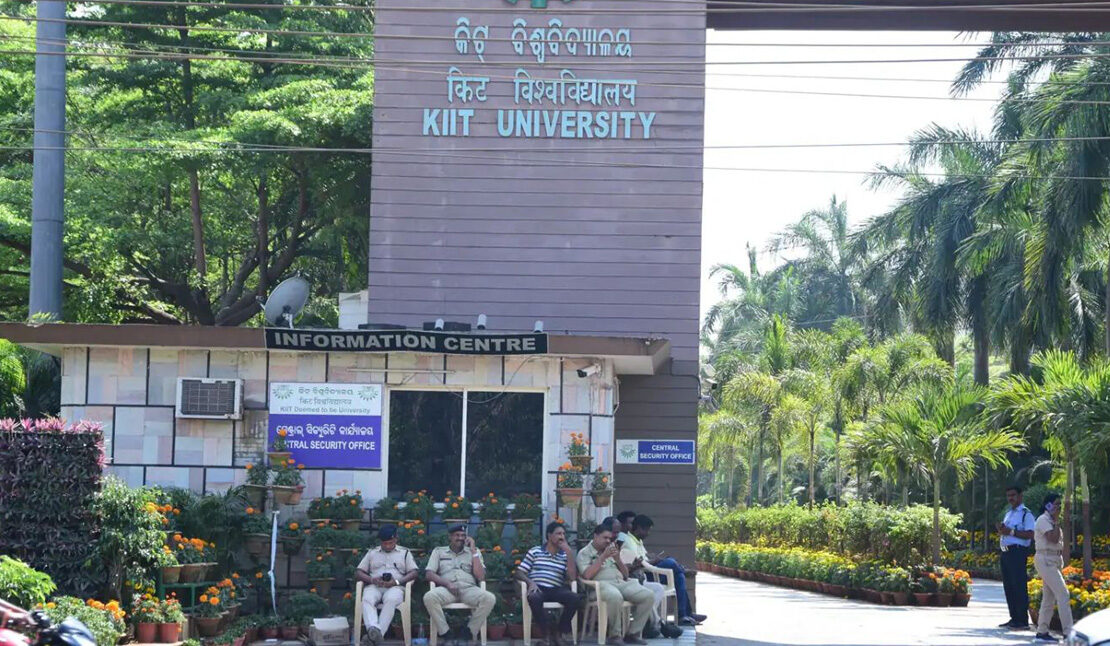KATHMANDU, May 14: Prakriti Lamsal, a Nepali student at Kalinga Institute of Industrial Technology (KIIT) University in Odisha, India, had repeatedly informed the university administration about being mentally harassed by a fellow student. However, her complaints were ignored, and the administration failed to take proper action, leading to the tragic death of Prakriti.
A source at the Bhubaneswar Police Commissioner's Office revealed that after Prakriti's second complaint, the university only suspended the student, Advik Srivastava, who harassed her, for three months. Upon his return, he continued his harassment, yet the university took no further action. This failure by the administration is considered a direct cause of Prakriti's death.
Shraddhanjali Nayak, KIIT's Chief Public Relations Officer, admitted that the harassment contributed to Prakriti's suicide. She confirmed that the university had suspended Srivastava, but the lack of additional measures was insufficient. "We believe the university administration bears part of the responsibility for this," she said.
Prakriti's relative, Siddhant Sigdel, filed a complaint with the police on February 16, accusing Srivastava of driving Prakriti to commit suicide. Acting on this, police arrested the 21-year-old and charged him with abetment to suicide after gathering substantial evidence, including electronic devices and the victim's mobile phone. Srivastava remains in judicial custody, facing charges under Section 306 of the Indian Penal Code, which can carry up to 10 years in prison.
The university initially labeled Prakriti's death as a suicide, but student protests over the administration's response led to an investigation. KIIT later expelled a Nepali student and issued an apology for its mistreatment of students, agreeing to cover their travel expenses. Nepali students returned to Nepal to resume their studies.
Probe Prisha's Death Thoroughly

KIIT hosts a significant number of Nepali students, with over 1,300 enrolled. An inquiry commission, formed to investigate Prakriti's death, concluded that the university administration was responsible for failing to ensure the safety of its students. As a result, KIIT announced a full scholarship for one Nepali student each year in Prakriti's name.
The Nepal government's concern led the Odisha state government to form a high-level commission to investigate the incident. Bhubaneswar Police Commissioner Dr. Suresh Devdutt Singh confirmed that the investigation was objective and fair and that further legal action would be taken. "We are committed to ensuring the safety of all students here, not just Nepali students," he said.
Aftermath of Prakriti's death
Following Prakriti's death, Nepali students at KIIT protested against the administration's inaction. The university labeled the protest as indiscipline and ordered over 500 Nepali students to vacate the hostel. The administration transported them 40 kilometers away to a train station, leaving them stranded. Diplomatic pressure from the Nepal government led to the lifting of the indefinite ban, and students were allowed to return to their hostel.
A complaint was filed with the Bhubaneswar police regarding the mistreatment of Nepali students by the university's security staff. In response, police arrested two security guards, Ramakant Nayak and Jogendra Behera.
Disturbance in Roti-Beti relationship
Nepal and India share a close historical, cultural, and geographical bond, often referred to as the roti-beti (bread-daughter) relationship. However, the deaths of Prakriti and Prisha Shah have raised serious concerns about the safety of Nepali students at KIIT. One student commented, "If the university had taken Prakriti's death seriously, Prisha's death would not have happened."
Death of Nepali Students at KIIT is not a normal incident
Member of Parliament Amresh Kumar Singh emphasized that the deaths of Nepali students at KIIT are not ordinary events. He noted that while Prakriti's death received significant attention in Parliament, Prisha Shah's death was largely ignored. He criticized the Nepal government for its inadequate response, stating, "We have asked the government for its stance and investigation findings on the Prisha case, but we have received no response. Was Prisha's death a suicide or a murder? We seek answers from the Nepal government."
Another Member of Parliament, Prabhu Sah, also expressed disappointment that the government had not yet provided official information to Parliament regarding Prisha's death. "We urge the Nepal government to take this matter seriously and clarify its stance," he said.








































